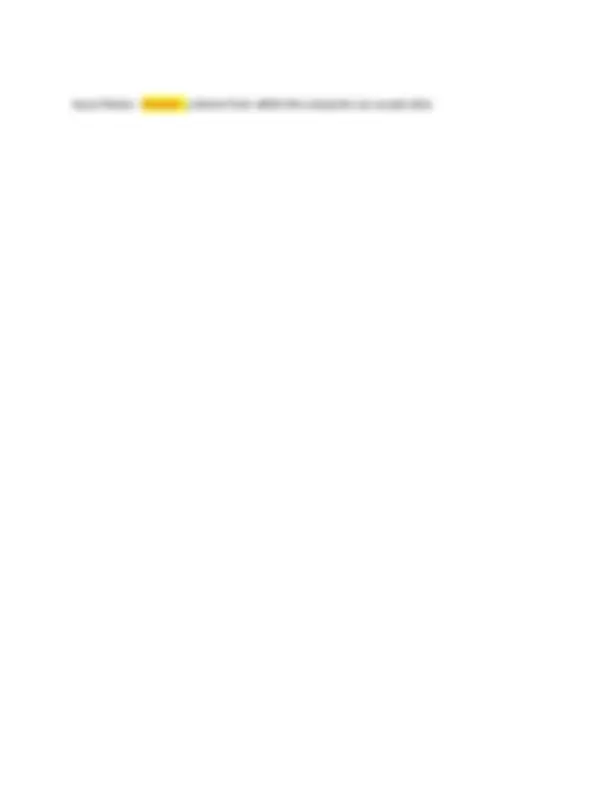



Study with the several resources on Docsity

Earn points by helping other students or get them with a premium plan


Prepare for your exams
Study with the several resources on Docsity

Earn points to download
Earn points by helping other students or get them with a premium plan
Community
Ask the community for help and clear up your study doubts
Discover the best universities in your country according to Docsity users
Free resources
Download our free guides on studying techniques, anxiety management strategies, and thesis advice from Docsity tutors
A basic study guide on computer terminology, defining essential components and functions. It covers hardware like cpu, monitor, keyboard, mouse, printer, motherboard, diskette, cd-rom, speakers, and digital camera. It also explains fundamental concepts such as bits, bytes, operating systems (os), ram, rom, and input/output devices. This guide is designed to help beginners understand the core elements of computer systems and their roles, offering clear and concise definitions for each term. It serves as a foundational resource for anyone starting to learn about computers.
Typology: Exams
1 / 3

This page cannot be seen from the preview
Don't miss anything!


Computer - Answer: an electronic machine that can perform calculations, and can accurately and rapidly process a large amount of data Hard Disk Drive - Answer: permanently installed inside the computer and capable of storing large amounts of information Central Processing Unit (CPU) - - Answer: the microchip that carries out all the computers functions; it is the brain of the computer. Monitor - Answer: displays text and images Keyboard - Answer: The set of typewriter-like keys that enables you to enter data into a computer. Mouse - Answer: A device that controls the movement of the cursor or pointer on a display screen Printer - Answer: An output device that prints letters, numbers and pictures on paper. Inkjet Printer - Answer: sprays ink onto paper to produce output Laser Printer - Answer: A non-impact printer that produces a high quality image, using a method similar to that of a photocopy machine
Motherboard - Answer: how data travels from one device to another through the computer. Diskette - Answer: soft magnetic disk CD-ROM - Answer: a type of optical disk capable of storing large amounts of data -- up to 1GB CD-ROM Drive - Answer: reads data stored on optical discs Speakers - Answer: projects recorded voices, sounds, and music Digital Camera - Answer: stores images digitally rather than recording them on film Bit - Answer: PC's operate through a vast number of on/off switches called Binary Digits. Byte - Answer: A string of 8 bits grouped together. They can be translated by the computer into a letter or action. Most common measurement of storage in the digital computer Operating System (OS) - Answer: a program that tells the computer how to properly run the software and hardware together in order to have a smoothly running computer system. Windows and Macintosh are the two most popular. Random Access Memory (RAM) - Answer: information is stored in this memory temporarily. It is lost when the computer is turned off. Read Only Memory (ROM) - Answer: Permanent memory that is built into the computer by the manufacturer Output Device - Answer: a device that displays or stores processed data